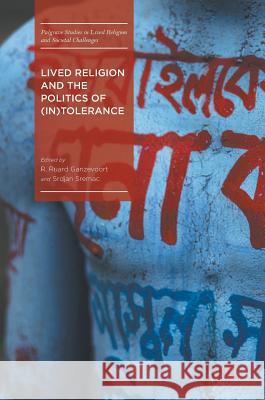Lived Religion and the Politics of (In)Tolerance » książka
topmenu
Lived Religion and the Politics of (In)Tolerance
ISBN-13: 9783319434056 / Angielski / Twarda / 2017 / 261 str.
Kategorie:
Kategorie BISAC:
Wydawca:
Palgrave MacMillan
Seria wydawnicza:
Język:
Angielski
ISBN-13:
9783319434056
Rok wydania:
2017
Wydanie:
2017
Numer serii:
000800916
Ilość stron:
261
Waga:
4.60 kg
Wymiary:
21.0 x 14.8
Oprawa:
Twarda
Wolumenów:
01
Dodatkowe informacje:
Wydanie ilustrowane











